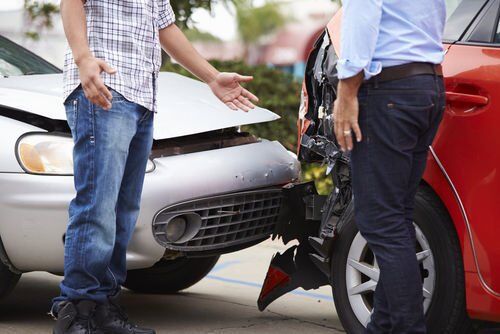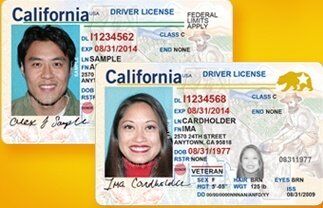
A reportable collision is a traffic accident that you are legally required to report to the DMV. In California, you must notify the DMV of an accident within 10 days if:
Similar reports must be made to the local law enforcement agency. Vehicle Codes 20008 and 16000 require you to report it to the police when someone is injured or killed. A violation of this statute is an infraction that results in a ticket.
The DMV’s reporting requirement exists so that the Department can:
Motorists report a traffic accident to the DMV via a Form SR-1.
Note that California law does not impose any requirement for you to report an accident to your insurance company.
Our California car accident attorneys will discuss the following in this article:

A crash resulting in less than $1,000 in damage and no injury is usually a non-reportable accident in California.
If you are a driver involved in an accident in California, you must report it to the DMV (a reportable collision) when:
An “accident” or “collision” includes any of the following:
Every driver involved in the accident must make a report. Further, you have to make this report within 10 days of the collision. Notice of the accident is even required if it took place on private property. 2
Example: Carlos is driving through a neighborhood. He takes a turn at a fast speed and he bounces off a curb, causing the car to flip up in the air. It lands upside down on the front yard of someone’s property. No one is hurt, but Carlos’s auto is badly damaged.
Here, Carlos would have to report the accident to the DMV. While nobody was hurt in the incident, the car was damaged in excess of $1,000. This report still has to get made despite the accident happening on private property. Note that if another driver caused Carlos’s vehicle to flip, and not the curb, then that driver would also have to make a crash report to the DMV.
Note that you still have to submit a DMV crash report even if the police show up at the scene and write their own report.
According to Vehicle Code 20008, if you are a driver involved in an accident, you must report it to the police department when:
This report must be made within 24 hours of the accident and it can be made to either:
Note that these rules do not apply if a patrolman or law enforcement officer:
Here, the report made by the authorities serves as a substitute for your report to the police. However, this is not true with regard to a report to the DMV.
Example: Beth and Ryan get into a traffic accident. A police officer arrives at the scene. He gathers information and prepares an official report.
Here, Beth and Ryan do not have to make their own report to police to satisfy VC 20008. Though they both have to still report the incident to the DMV.
Note that if you do not report an accident to police, then:

The DMV’s reporting requirements exist so that it can monitor the driving history of all drivers
The DMV’s reporting requirements exist so that it can:
Under the negligent operator treatment system (NOTS), the DMV can declare you a “negligent operator” if you get enough “points” on your driving record. You will receive points on your DMV record for such things as:
The DMV can do the following if you earn enough points within a 1-, 2- or 3-year period:
Note that you can challenge a suspension or revocation at a DMV hearing.
You report a traffic accident to the DMV via a Form SR-1. 5
The form allows you to:
California law says that all parties to an accident must file an SR-1. This is true no matter who caused the collision. 6
California law does not require you to report an accident to an insurance company.
But most insurance policies state that you should:
If no report is made in a reasonable time, then:
Insurance companies encourage reporting so that they can start defending a claim.
Note that if you do not have auto insurance, you are still required to report reportable accidents to the DMV. The DMV may suspend your driver’s license when it discovers you have no insurance. However, the DMV would suspend your license anyway if it finds out that a crash went unreported.
The Federal Motor Carrier Safety Administration (FMCSA), a division of the Department of Transportation, has specific guidelines for reporting accidents involving commercial motor vehicles (CMVs) – such as big rig trucks – that fall under their jurisdiction. According to FMCSA regulations, a DOT reportable accident generally includes the following:
DOT reports are typically made by the parties involved in the accident, such as drivers, companies, or carriers operating commercial motor vehicles (CMVs), as well as law enforcement agencies. The specific reporting requirements and procedures may vary depending on the country or region.
In the United States, motor carriers are generally required to file the report within a specific timeframe, often ranging from 24 to 48 hours after the accident. However, it’s important to check the specific regulations of the relevant transportation authority for accurate reporting deadlines.
The content of DOT reports typically includes:
Please also see our articles on